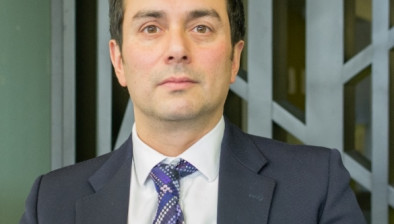Court of Appeal: Jonathan Dowdall fails in appeal against severity of four-year sentence for Recency Murder involvement

The Court of Appeal has dismissed an appeal by Jonathan Dowdall against the four-year sentence handed down to him for his involvement in the murder of David Byrne at the Regency Hotel. The court held that the sentence was “very lenient” and was within the available range open to the Special Criminal Court.

About this case:
- Citation:[2023] IECA 182
- Judgment:
- Court:Court of Appeal
- Judge:Mr Justice George Birmingham
Delivering judgment in the case, Mr Justice George Birmingham said that it was understandable that Mr Dowdall sought to minimise the extent of the assistance offered by him in the Regency attack. However, the offending was “very serious indeed”, the court said.
The court also rejected submissions that there was a lack of parity compared to other individuals sentenced for the attack, that he did not receive appropriate credit for a guilty plea and that a portion of the sentence should have been suspended.
Background
In February 2016, several gunmen attacked the Regency Hotel where a boxing weigh-in was taking place. The attack was part of the Hutch-Kinahan feud. Mr David Byrne was killed in the attack.
Mr Dowdall was originally charged with murder but, following an approach by the policing authorities, a nolle prosequi was entered to the charge and a new charged was laid. Mr Dowdall pleaded guilty to this new charge, being the offence of participating in or contributing to activities which would facilitate the commission of a serious offence by a criminal organisation.
The sentence hearing for the offence took place in October 2022, where the Special Criminal Court heard evidence in relation to the murder investigation and Mr Dowdall’s involvement in the attack. Specifically, it was outlined that Mr Dowdall assisted in organising a room in the hotel for other individuals involved in the attack. He also travelled with Mr Gerard Hutch to Northern Ireland and discussed the attack.
At the sentencing hearing, the SCC referred to the guiding principles contained in DPP v. Aylmer [2020] IECA 106. The court was satisfied that Mr Dowdall knew he was assisting a serious criminal organisation and had followed instructions. The hotel room gave the murderer(s) a base to carry out criminal activities and provided a legitimate appearance to their presence in the hotel.
The court identified a headline sentence of eight years’ imprisonment and then considered mitigating and personal factors. It was noted that Mr Dowdall was not a person of previous good character, although he had faced previous imprisonment in a proper and serious manner.
The court stated that, in the ordinary course of events, it would be inclined to reduce the sentence to six years. However, the “extraordinary additional factor” was the decision by Mr Dowdall to make a statement and give evidence against other individuals in the case. As such, the court reduced the overall sentence to four years.
Mr Dowdall appealed the severity of the sentence, arguing that the proper sentence was less than four years. It was submitted inter alia that the headline sentence was too high, his role in the attack was limited, the comparison with Aylmer was inappropriate and that his sentence lacked parity with his father’s sentence.
Court of Appeal
The court began by noting that Mr Dowdall applied to adduce new evidence in the appeal. Since he had given evidence against a criminal organisation, Mr Dowdall stated that the impact on his family was significant. As such, he wished to adduce evidence from his wife in this respect.
The court held that it would not allow such evidence. Mr Dowdall’s decision to give evidence was central to the plea in mitigation and there was nothing in the proposed new evidence which would undermine the decision of the SCC (DPP v. Colbert [2016] IESC 69 considered).
Turning to the appeal itself, the court noted that the maximum sentence for the offence was 15 years’ imprisonment. The evidence was that criminal gangs involved in the case were high level and the assistance provided was very significant “by any standards”.
The court held that the SCC had proper regard to the fact that Mr Dowdall assisted in the aftermath of the murder. Although the court held that it was surprising for the SCC to refer to a firearms seizure (as this did not arise on the evidence), the reference did not invalidate the sentencing hearing.
The offending in this case was “very serious indeed” and the eight-year headline sentence was “well within the range available to the Special Criminal Court”. Mr Justice Birmingham stated that the Court of Appeal would not have been minded to intervene even if the SCC had identified a 10-year headline sentence.
The court then considered the submission that Mr Dowdall’s sentence should be on a par with his father’s, having regard to their respective involvement in the case. The court held that there was a “clear basis for differentiating between the roles played by the two Dowdalls”. The appellant had significant involvement post-murder and the differentiation was one that was open to the SCC.
Mr Justice Birmingham also rejected that a 25 per cent credit for a guilty plea was inadequate and the appellant should have been treated as if he had signed a guilty plea. The court said this argument was “somewhat strained”. While the court had previously spoken about the value of a signed guilty plea, it was noted by the SCC that Mr Dowdall had brought a challenge against the SCC’s jurisdiction to the Supreme Court.
The Court of Appeal stated that Mr Dowdall was not to be criticised for availing of legal options which were open to him, although this did not mean that he should receive greater credit than would normally be allowed. Over the court was satisfied that the correct credit had been applied.
In considering whether to suspend a portion of the sentence, the court noted that Mr Dowdall would be required to leave the jurisdiction on completion of his sentence. As such, normal considerations for suspending a sentence, such as rehabilitation, did not arise.
Conclusion
The court concluded by commenting that the sentence imposed was “generous” and “very lenient”. As such, the court was in no doubt as to the appropriateness of the sentence and, if anything, the court would have been inclined to consider whether a more severe sentence should have been imposed.
Accordingly, the appeal was dismissed and the sentence was upheld.
The People at the Suit of the Director of Public Prosecutions v. Dowdall [2023] IECA 182












